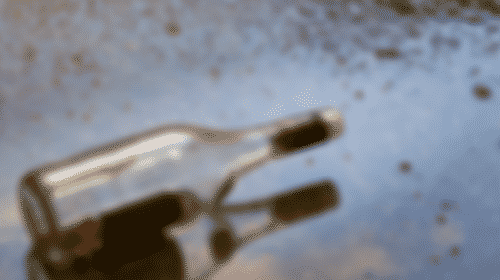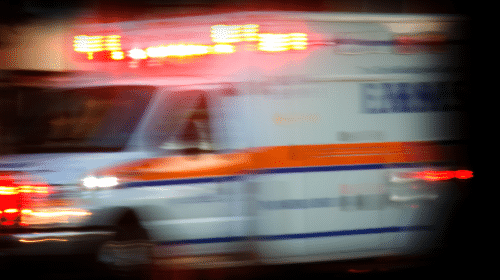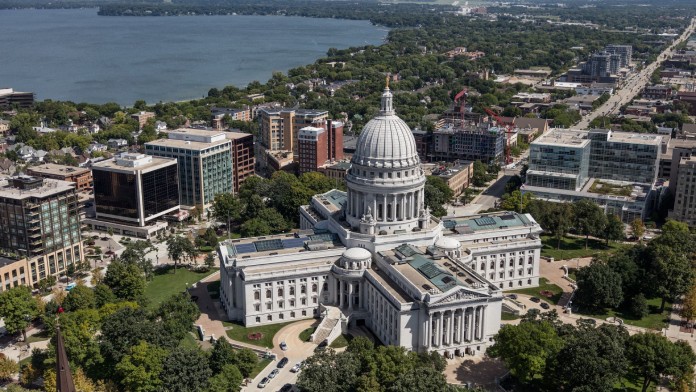Expert Insights
The National Institutes of Health (NIH) recently established a national research network meant to evaluate harm reduction services. This new network includes nine research studies, one of which will be conducted at the University of Wisconsin–Madison. The University of Wisconsin–Madison School of Medicine and Public Health’s Dr. Ryan Westergaard will head up a team of researchers to test the effectiveness of remote tools like overdose prevention hotlines and secure smartphone applications designed to improve access to harm reduction services in urban and rural regions of Wisconsin.
~ Lesley Wirth
How Expensive is Drug Rehab in Madison?
The cost of drug and alcohol rehab in Madison depends upon several factors. Inpatient tends to be more expensive than outpatient because you receive more intensive treatment plus room and board. The length of the program also affects the cost.6
In addition, the cost of care climbs with its amenities, such as recreational facilities (pool, tennis courts, etc.), the exclusiveness of the facility, and the breadth of treatments offered (equine therapy, meditation, yoga, art therapy, nutritionists, etc.).
There are rehabs that take private insurance, Medicaid, and Medicare. If you have private insurance, please call the number on the back of your card to verify how much it covers.
Madison also has government- and state-funded addiction treatment centers that are less expensive. Please call one of our specialists for help finding a facility that meets your needs and financial situation.
Are There Low-Cost and Free Drug Rehab Centers in Madison?
Some Madison drug rehabs receive state or federal dollars to run their programs. With government funding, they may provide free or low-cost treatment to you if you can’t afford to pay.
The Wisconsin Department of Health will help you find free or low-cost care if you:7
- Have been denied health insurance
- Have reached your plan’s dollar limits
- Have a large copay or deductible you can’t afford
Pregnant women with a SUD are given priority for admissions.
Does Insurance Cover Rehab Center Costs?
Due to Obamacare, also known as the Affordable Care Act (ACA), private insurance usually covers expenses at rehabs and detox centers in Madison.8
For group health insurance plans, the Mental Health Parity and Addiction Equity Act says copays, deductibles, and dollar caps for coverage need to be the same for mental and physical health conditions.9
Medicaid
Medicaid, a federal- and state-funded health insurance, covers approximately 1 million people in Wisconsin.10 To be eligible for Medicaid in Wisconsin, you must be a legal resident of Wisconsin and the U.S., need financial assistance with health insurance and fall below income levels that depend upon your family’s size.11
For a single person, you can’t make more than $18,075 a year before taxes, and for a family of four, your household can’t earn more than $36,908 before taxes.11 Medicaid covers residential treatment but not room and board. You’ll need to pay that portion out of your own pocket.7
In addition, you must meet one of these criteria:11
- Be pregnant
- Be responsible for someone 18 years old or younger
- Be blind or disabled
- Be live in a household with a disabled person
- Be 65 or older
Medicare
Medicare is a government health insurance available for people 65 years and older and for younger disabled people. Coverage for inpatient rehab falls under Medicare Part A, outpatient under Medicare Part B, and medications under Medicare Part D.12
Medicare pays 80% of the allowed amount for SUD treatment. You’ll pay:13
- A Part A deductible of $1,556 for 1 to 60 days of inpatient care with no additional coinsurance paid
- $389 a day in coinsurance for days 61 to 90 of inpatient care
- A Part B deductible of $233 for outpatient care14
Private Insurance
If your employer doesn’t offer health insurance as part of your benefits package, 14 carriers offer health insurance on Wisconsin’s marketplace exchange that you can purchase directly.16 You may also be eligible for health insurance through a group or association you belong to.

How Does Madison Compare in Alcohol and Drug Use?
Madison, Wisconsin, topped the list of best small to mid-sized U.S. cities to live in, according to Livability’s 2021 poll.1 This was due, in part, to Madison’s strong economy, quality healthcare, affordable housing, and many amenities. Plenty of outdoor recreation and Madison’s scenic location between Lakes Mendota and Monona add to its appeal. But Madison shares the rest of the nation’s troubles with alcohol and drug abuse or substance use disorders (SUDs). If you are struggling with addiction, there are more than 15 accredited alcohol and drug rehab centers in Madison that can get you on the path to recovery.2

In 2019, about 24% of people in Wisconsin admitted to binge drinking in the last month

About nine out of every 10 residents admitted to illicit drug use in the previous month.3

In 2020, Dane County reported 225 alcohol-related deaths and 138 drug overdose deaths. 4,5

Nearly nine out of 10 people who died from drug overdoses had opioids in their system.5
For 2020, Dane County reported 225 alcohol-related deaths and 138 drug overdose deaths. 4,5 Drug overdose deaths increased by 39% over the number of deaths in 2016.5 Nearly nine out of 10 people who died from drug overdoses had opioids in their system. Fentanyl, a potent synthetic opioid, was a frequent culprit.5
Nearly 78% of people who died from drug overdoses were white and 16% were Black. Even though fewer Black people died overall, they were three times more likely to die from drug overdoses than white people based on Dane County’s demographics.5
Drug and Alcohol Laws in Madison
Wisconsin Good Samaritan Law: This law protects people who render emergency care from prosecution. It includes helping someone who has overdosed on drugs. Under this law, if you call for emergency medical help after using drugs, you can’t be tried in court for possessing drugs or drug paraphernalia.34
Fair Employment: Under the Wisconsin Fair Employment Practice Act (General Statute 111.31), an employer can’t discriminate against a person with a disability. Disabilities include SUDs.35
Dane County Courts: Adult drug court, operating while intoxicated (both alcohol and drug intoxication) courts, and veterans treatment court provide alternatives to punishment for people charged with non-violent drug or alcohol-related felonies. After treatment, sentences may be reduced or eliminated.36
Choosing the Right Level of Care
There are various levels of addiction treatment, ranging in intensiveness and frequency of care. The right level for you depends on the length and severity of your addiction, your mental and physical health, your support system, and more.
Medical Detox
Drug and alcohol detox takes place in a supervised setting, where your body will be cleared of all addictive substances. If you addiction is severe, you may need to have your detox managed by a medical team, which means doctors and nurses provide medications and medical care round-the-clock.
Substances like alcohol, benzodiazepines, and opioids have particularly stressful and sometimes dangerous withdrawal symptoms.
Inpatient
Inpatient care, also referred to as residential rehab, is the most intensive addiction setting, providing 24/7 care, supervision, and monitoring. Your program may last 30, 60, or 90 days, and you will live at the treatment center during this time. This setting is best for someone with a severe addiction or co-occurring mental health disorder, like PTSD or depression.
Partial Hospitalization Programs (PHPs)
PHPs are a step down from inpatient care. You go to the clinic every day for several hours per day but return home during non-treatment hours. It’s a great option for someone who’s completed an inpatient program or as an initial program for someone who can’t necessarily go to inpatient care due to other obligations.
Intensive Outpatient Programs (IOPs)
A step down from PHP, an IOP includes several hours of therapy for a few days per week. This option is typically best if you have a mild addiction and a strong support system. It is also sometimes used as step-down care after completing inpatient or PHP.
Standard Outpatient
If you choose standard outpatient treatment, you will attend therapy one to two days per week for one or two hours per session. This is the least intensive level of care.
Aftercare
Once you’ve completed your rehabilitation program, you will want to continue receiving ongoing support, known as aftercare. Your aftercare plan may include a sober living home, a support group, attending therapy, or all of the above.
Finding Specialized Drug Rehabs in Madison
Finding a treatment setting that aligns with your views can be beneficial:20
Holistic
Holistic Madison alcohol rehabs incorporate traditional (behavioral therapy, counseling) and alternative therapies in your treatment plan. Complementary and alternative therapies are meant to enhance rather than replace traditional treatments.
Christian and Faith-Based
If your faith and/or religion provide comfort and direction to your life, you may benefit from the traditional therapy and spiritual support you’ll receive at a faith-based rehab. In group therapy, you’ll be surrounded and supported by people with a similar foundation in faith.
Luxury
Luxury drug rehabs in Madison provide upscale amenities in a discrete and private setting. Amenities often include chef-prepared meals, recreational facilities (pool, tennis court, gym with personal trainers), equine therapy, and a nicely appointed facility in a beautiful location such as lakeside, on the beach, or in the mountains.
Executive
Executive rehabs are geared toward working professionals. Your treatment team understands you may need to work during care. You’ll have access to a computer and your phone. You may have private office space and access to a conference room for meetings. Therapy may be scheduled around your work responsibilities.
Dual Diagnosis
Dual-diagnosis rehab addresses both SUDs and mental health diagnoses. An estimated 45% of people with alcohol or drug addiction also have a mental health diagnosis. In 2020, this amounted to 17 million adults in the U.S.22
What is Medication-Assisted Treatment (MAT)?
Medication-assisted treatment combines behavioral therapy, counseling, and medications to help reduce or stop the use of alcohol and/or opioids. The Food and Drug Administration (FDA) has approved several medications proven to be effective for treating opioid and alcohol addictions.
Methadone: Methadone is a prescribed medication used to specifically treat opioid misuse. Methadone is a long-acting opioid that works by blunting or preventing the euphoric or good feeling you get after using shorter-acting or more potent opioids.
Suboxone: Suboxone is a combination of two medications: buprenorphine and naloxone. Suboxone is called a partial opioid agonist. It prevents the opioids you take from giving you a pleasant feeling.29
Naltrexone: Naltrexone comes in oral (ReVia) and long-acting injection (Vivitrol) forms. Naltrexone blocks the pleasurable effects of opioids and alcohol. It also reduces cravings for both.33
Antabuse (Disulfiram): Disulfiram (Antabuse) causes such unpleasant side effects when you drink that you lose the urge to ingest alcohol.
Acamprosate: FDA-approved acamprosate (Campral) is used to reduce symptoms of anxiety, insomnia, restlessness, and unsettled feelings associated with prolonged alcohol withdrawal.
Should You Travel for Drug and Alcohol Rehab in Madison?
 If you’re looking for a fresh start, away from people or places that may make it hard for you to stay in treatment, Madison offers plenty of accredited rehabs for you to choose from. You may also consider traveling to Madison because:1
If you’re looking for a fresh start, away from people or places that may make it hard for you to stay in treatment, Madison offers plenty of accredited rehabs for you to choose from. You may also consider traveling to Madison because:1
- Its healthcare facilities rank highly
- It is surrounded by natural beauty
- It has plenty of outdoor recreational opportunities
- Its free activities range from summer concerts to admission to the botanical gardens
Downtown: Perfect for people who enjoy city life, the downtown area has museums, restaurants, music venues, and shops. The capitol building has an observation deck for you to enjoy a bird’s eye view of Madison.
Eastside: A big draw to this neighborhood is Tenney Park. Its winding paths, lake views, and picturesque bridges offer a chance to spend time in nature while still being in the city.
Schenk-Atwood: This lively, hip neighborhood has plenty of ethnic restaurants, cute boutiques, and cultural attractions.
Resources
- Livability.com. (2022). 2021 Top 100 Best Places to Live in America.
- FindTreatment.gov. (n.d.). FindTreatment.gov.
- Substance Abuse and Mental Health Services Administration. (2019). Treatment Episode Data Set (TEDS) 2019.
- Substance Abuse and Mental Health Services Administration. (2020). National Survey on Drug Use and Health.
- Wisconsin Department of Health Services. (2022). Alcohol: Attributable Deaths by County Dashboard.
- Public Health Madison and Dane County. (2022). Drug Overdose Deaths in Dane County, Annual Report.
- National Center for Drug Abuse Statistics. (n.d.). Average Cost of Rehab.
- Wisconsin Department of Health Services. (2022). Substance Use: Care and Coverage.
- Healthcare.gov. (n.d.). Mental health & substance abuse coverage.
- Centers for Medicare & Medicaid Services. (n.d.). The Mental Health Parity and Addiction Equity Act.
- Wisconsin Department of Health Services. (2022). Medicaid in Wisconsin.
- Medicaid.gov. (n.d.) Wisconsin Medicaid.
- U.S. Department of Health and Human Services. (2014). Who is eligible for Medicare?
- Medicare.gov. (n.d.). Mental health care (inpatient).
- Centers for Medicaid and Medicare Services. (2021, November 12). 2022 Medicare Parts A & B Premiums and Deductibles.
- Medicare.gov. (n.d.). What’s Medicare Supplement Insurance (Medigap)?
- Healthinsurance.org. (n.d.). See your Wisconsin health insurance coverage options now.
- National Committee for Quality Assurance. (2022). NCQA Health Insurance Plan Ratings 2019-2020.
- Substance Abuse and Mental Health Services Administration. (2014). What is Substance Abuse Treatment?
- National Institute on Drug Abuse. (2019, January 17) Treatment Approaches for Drug Addiction DrugFacts.
- National Institute on Drug Abuse. (2020, September 18). Principles of Effective Treatment.
- Zgierska, A., Burzinksi, C. (2016). Substance use disorder treatment—complementary approaches: clinical tool.
- Substance Abuse and Mental Health Services Administration. (2021). Key Substance Use and Mental Health Indicators in the United States: Results from the 2020 National Survey on Drug Use and Health.
- Substance Abuse and Mental Health Services Administration. (2010). Substance Abuse Treatment for Persons with Co-Occurring Disorders.
- Substance Abuse and Mental Health Services Administration. (2021). Medications for Opioid Use Disorders.
- Substance Abuse and Mental Health Services Administration. (2015). Medication for the Treatment of Alcohol Use Disorder: A Brief Guide.
- Substance Abuse and Mental Health Services Administration. (2010). Incorporating Alcohol Pharmacotherapies into Medical Practice.
- Connery, H.S. (2015). Medication-Assisted Treatment of Opioid Use Disorder: Review of the Evidence and Future Directions. Harvard Review of Psychiatry.
- Substance Abuse and Mental Health Services Administration. (2022). Methadone.
- National Alliance on Mental Illness. (2021). Buprenorphine/Naloxone (Suboxone).
- Substance Abuse and Mental Health Services Administration. (2021). Tip 63: Medications for Opioid Use Disorder.
- Substance Abuse and Mental Health Services Administration. (2022). Buprenorphine.
- Substance Abuse and Mental Health Services Administration. (n.d.). Buprenorphine Practitioner Locator.
- National Alliance on Mental Illness. (2021). Naltrexone (ReVia).
- Wisconsin Legislative Council. (2017). Civil Immunity under Wisconsin’s Good Samaritan Laws.
- Wisconsin State Legislature. (2022, May 20). Fair Employment.
- Criminal Justice Coordinating Council. (n.d.) Dane County.




